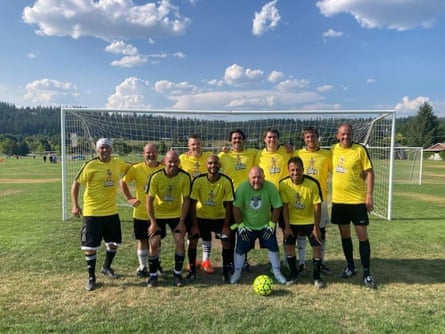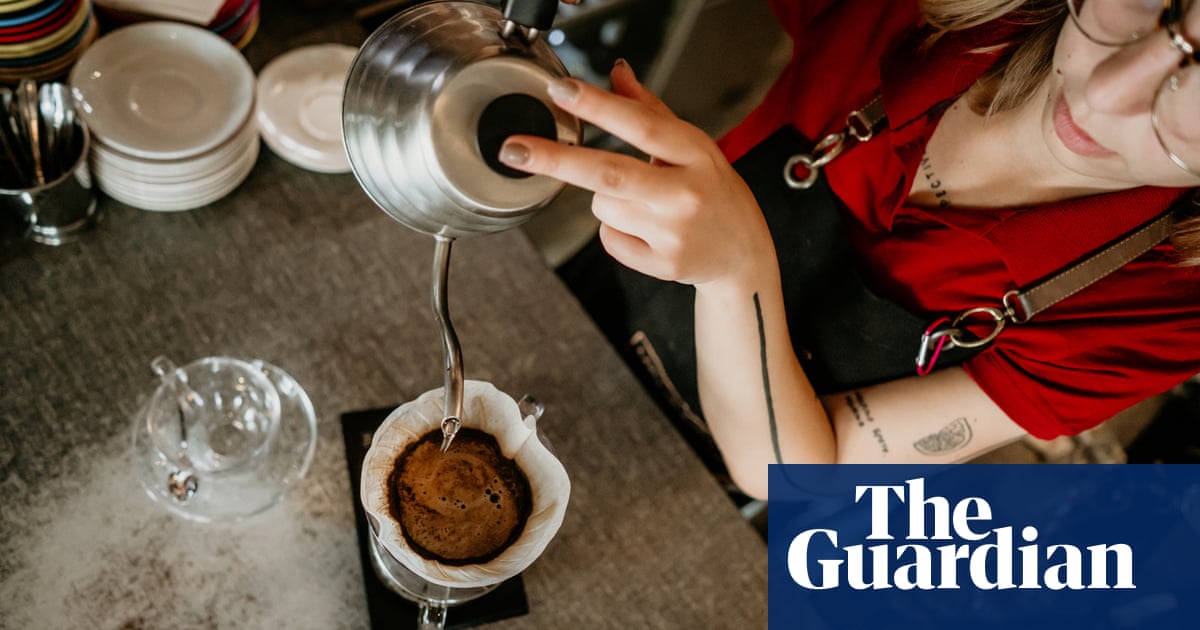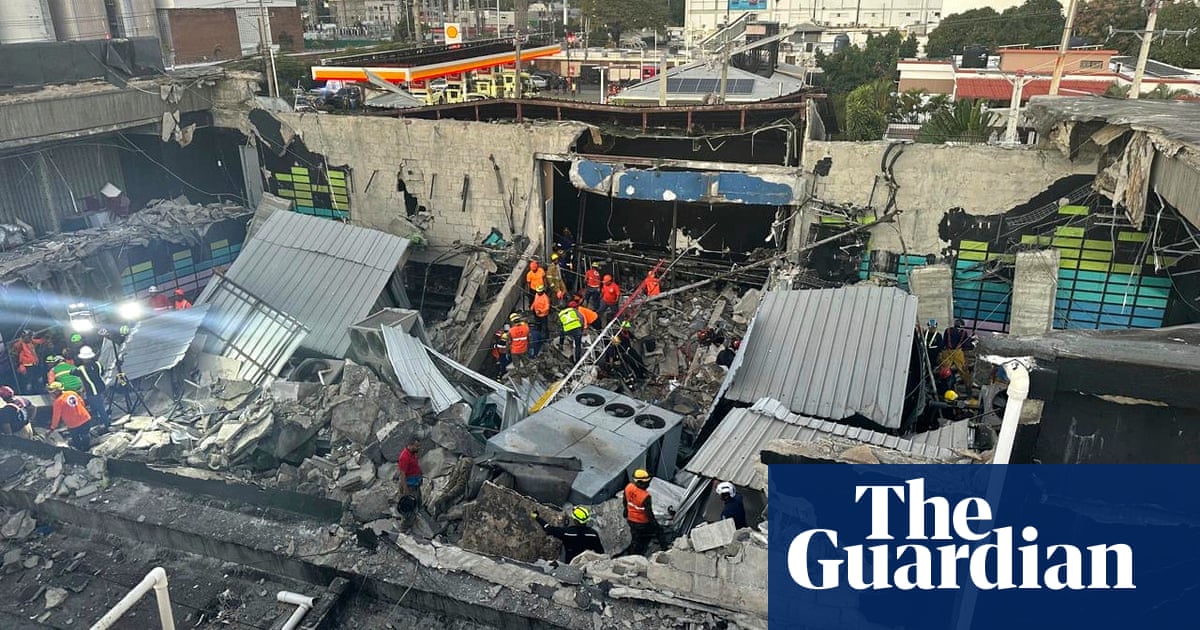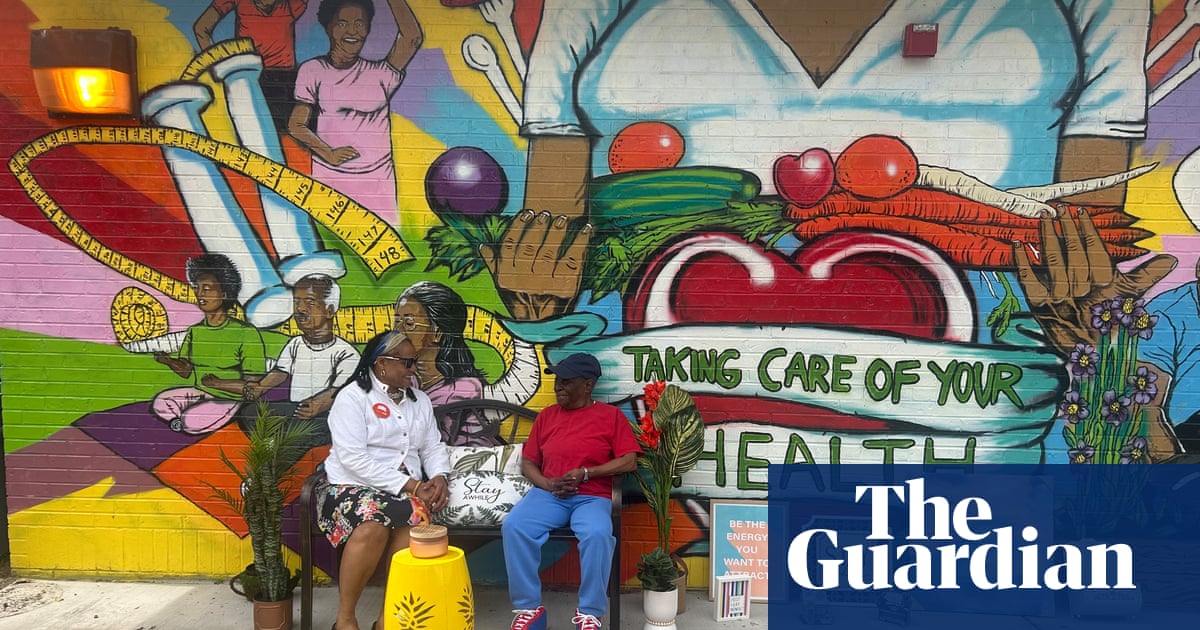It finally happened while he was waiting to get his hair cut.
Alberto Lovo Rojas, an asylum seeker from Nicaragua, had been feeling uneasy for weeks, worried that immigration officials would arrest him any moment. But he had pushed the worry aside as irrational – after all, he had a permit to legally work in the US, and he had been using an app to check in monthly with Immigration and Customs Enforcement (Ice).
Still, something felt off. The Trump administration had promised mass deportations, and in the weeks since Donald Trump’s inauguration, Ice had asked him to do extra check-ins each weekend. “I even messaged the Ice office through my app, to ask if something was wrong,” Rojas said.
His last check-in with Ice was on 5 February – all normal. On 8 February, they came for him.
He was outside Great Clips in the Lincoln Heights neighborhood of Spokane, Washington. The barbershop had been crowded, so he put his name down for a cut and decided to wait in his car.
Hours later, he was moved into the north-west detention center in Tacoma, awaiting deportation to Nicaragua – which he fled in 2018 amid a violent crackdown against nationwide anti-government protests. Rojas fears he’ll be targeted again.
“I’m afraid to go back, I’m afraid for my life,” he told the Guardian. “I’m afraid I will never see my children again.”
Rojas, 42, is one of potentially hundreds of people who have been detained in recent weeks despite complying with Ice requirements to regularly check-in. Ice does not appear to keep count of how many people it has arrested at check-ins. But the Guardian has estimated, based on arrest data from the first four weeks of the Trump administration, that about 1400 arrests – 8% of the nearly 16,500 arrests in the administration’s first month – have occurred during or right after people checked in with the agency.

Lawyers and immigration advocates told the Guardian they believe that in order to oblige the president’s demand for mass arrests and deportation, immigration officials are reaching for the “low-hanging fruit” – people that Ice had previously released from custody while they pursued asylum or other immigration cases in a backlogged immigration court system.
Most of these people do not have criminal histories and have dutifully been complying with the government’s orders to routinely report to immigration officials. Some have pending asylum cases, or are appealing their deportation orders. Others, like Rojas, had been denied their claims to stay in the US, but were released on supervision.
In Rojas’s case, he was allowed to stay in Spokane with his wife and children – who had pending asylum cases – and apply yearly for a permit to legally work.
“I just don’t understand,” Rojas’s wife, Dora Morales said. “Why would they want to arrest him now?
Rojas had left Nicaragua with his uncle in September 2018.
Both men had participated in Nicaragua’s April rebellion of 2018, a movement that started among university students. The movement was incited by unpopular changes to the social security system, but quickly grew into a massive movement calling for democratic reforms.
Government forces immediately responded with crushing brutality, shooting at young protesters. “I felt a lot of pain, sadness to see mothers crying for their children,” Rojas said. He felt called to join the cause.
Send us a tip
If you are connected to someone who has been deported or is in fear of deportation and have information you’d like to share securely with the Guardian, please use a non-work device to call or text immigration reporter Maanvi Singh via the Signal messaging app at 929-418-7275.
Rojas was well known in his neighborhood, and he started to help organize protests and arrange transportation for those interested in attending.
But as the demonstrations grew, so did the backlash. Police and pro-government paramilitary groups killed hundreds of students, human rights activists and journalists. His uncle was beaten and shot twice by Nicaraguan paramilitary officers.
They had to leave, Rojas said. They went into hiding and eventually made their way out of the country, through Honduras and Guatemala before arriving at the US-Mexico border.
“I never broke an immigration law,” Rojas said. He did exactly as he was directed – waiting a week in a notorious hielera – a frigid Customs and Border Protection holding cell where newly arrived immigrants slept on concrete floors. Then he was transferred to Phoenix, Arizona; flown to a detention center in Memphis, Tennessee; then Mississippi, where officials interviewed him to assess his eligibility for asylum in the US; and finally sent to Louisiana while his case was assessed.
In July of 2019, a judge denied his asylum application, and he remained in detention while his lawyers appealed. And then – finally – in May 2020, as Covid-19 rapidly spread through the facility where he was held, Rojas’s fate changed. Following a class-action lawsuit, a federal judge ruled that Ice must consider the release of all detainees whose age or health conditions put them at elevated risk of Covid infection.
Rojas is missing a kidney – a complication from a car accident when he was a child – and was especially at risk of complications from a coronavirus infection. So they let him go. “It was such a miracle,” he said.

While Rojas was in detention, Morales and the couple’s two young sons, Alberto Jr and Matteo, had managed to escape Nicaragua as well. The family reunited in Spokane. He found work in construction, then on a ranch – and eventually, he was able to get a job as a mechanic at the Corwin Ford dealership in Spokane.
“It was almost like some stereotypical, all-American dream. I mean, he was literally working for Ford!” said his friend Lizzy Myers. “He had just gotten this new lease on life, and he was really doing well.”
Rojas and Morales had met – years ago – at church. He fell in love with her singing voice, and she managed to chat him up by asking for his help with English. In Spokane, the couple were once again able to attend mass together.
Rojas began playing pick-up soccer with a local league. He’s been coaching his eldest in the sport as well. “And they are both improving so much – they are really getting quite good,” Rojas said. Last year, the family welcomed their newest member – baby Santiago – whom they baptized in Spokane’s St Peter church.
Rojas’ lawyers reassured him that so long as he complied with Ice’s orders to routinely check in, and applied to renew his work permit each year, he’d be fine.
“When the president won the election, he said he would arrest the criminals,” Rojas said. “I was worried. But also, I am not a criminal.”
But then, Trump took office and rolled back a Biden-era memo prioritizing the deportation of people with criminal records or who posed threats to public safety. Now, all immigrants in the US without a legal status are subject to arrest, including those who have been checking in and cooperating with Ice. To meet the president’s goal for “mass deportations”, immigration officials have become more indiscriminate in their enforcement, a Guardian analysis last month found.
The US arrested more immigrants in February 2025 than any month in the last seven years. Still, no one in his community believed that Rojas would be one of them.
“We were all just shocked,” said Susy Glamuzina, his close friend and co-worker. Glamuzina had rushed to Morales’s side as soon as Rojas was arrested and had been driving the family over to Tacoma to visit Alberto in detention. “I just thought, you know, he had a baby who was born here,” she said.

Their boss reassured Alberto he’d hold Rojas’s job until he returned, and offered to pitch in for his legal fees. Marcus Riccelli, a Democratic state senator representing Spokane, who played soccer in the same league as Rojas, heard about the case, offered to help find Rojas legal representation and called in a favor to help his family file paperwork to delay his deportation. Meanwhile, friends have jumped in to help Morales with childcare and connect their children – who had been struggling since Rojas’ arrest – with counselors to help them process the trauma.
Glamuzina and his friends have already planned a party for when he returns home. “Alberto is really missed. We want him back. And I’ll tell you – if they need any personal testimonies for his case, I can have 20 people in Tacoma in a heartbeat.”
A GoFundMe page for his legal fees, started by Myers, has so far raised nearly $17,000.
The family has been using the funds to pay for legal fees, and their lawyers have filed a motion to reopen Rojas’ asylum case. They’re also hoping Rojas will be released soon.
He worries about health complications due to his missing kidney if he were to contract any infections while in detention.
Morales has chided Rojas for not eating enough. Mealtimes in the detention centre have been irregular, and Rojas has not been in the mood to eat.
“I see my husband is getting thinner in detention,” she said. “And I told him, I don’t want to see you thinner, because it would make me sadder than I already am!”
It has been difficult, for both of them, not to think about what will happen if he is deported.
Morales said news that Rojas has been detained in the US has already spread through their town in Nicaragua, and she worries that government-appointed neighborhood committees will be waiting, ready to alert authorities of Rojas’s arrival. If he isn’t imprisoned or worse, Morales said she worries he could end up exiled – the Nicaraguan government stripped citizenship from hundreds of opponents.
“I am preparing for the worst,” Rojas said. “I am praying and I am preparing myself spiritually for what is to come.”

 2 days ago
8
2 days ago
8













































